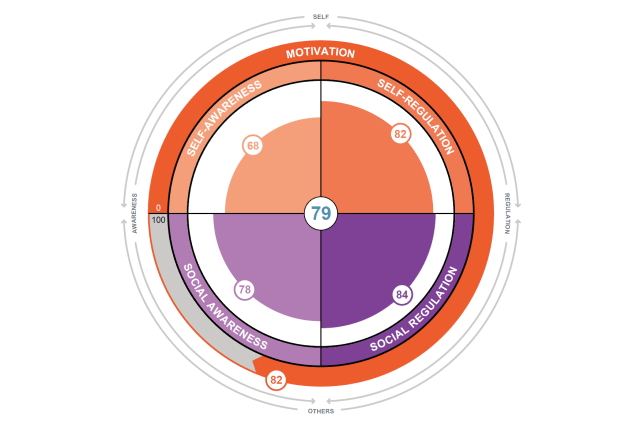I’m sure you’ve heard the term Emotional Quotient (EQ, or Emotional Intelligence). It’s been a buzzword for a while now. But do you understand its importance and why you should care about it?
EQ is important because it’s what separates the high performers from the low performers. Travis Bradberry, of TalentSmart, has done the research and “found that 90% of top performers are also high in emotional intelligence.”
Emotionally intelligent leaders can more effectively motivate, engage and retain their employees. Because we now live in a world where employees are not worried about being able to find another job and we know they won’t stick around if managers can’t control their temper, or if they are too demanding, it’s important that leaders evolve and grow. Today’s managers need to focus more than ever on the human element … on the “people side” of the business. Which means it’s important to strengthen your emotional intelligence.
There are four dimensions of EQ:
- Self Awareness: the ability to recognize and understand your moods, emotions and drives, as well as their effect on others.
- Self Regulation: the ability to control or redirect disruptive impulses and moods and the propensity to suspend judgement and think before acting.
- Social Awareness: the ability to understand the emotional makeup of other people and how your words and actions affect others.
- Social Regulation: the ability to influence the emotional clarity of others through a proficiency in managing relationships and building networks.
Self Awareness is the foundation on which you can build the other three EQ dimensions. You can start today by working to improve your awareness of your own emotions and reactions to situations. Three times a day, stop and take your “emotional temperature.” What are you feeling? Why are you feeling it? How has that emotion affected your behavior and reactions to situations and people?
Approach this exercise thoughtfully and critically. It will build your EQ and strengthen your effectiveness as a leader.
